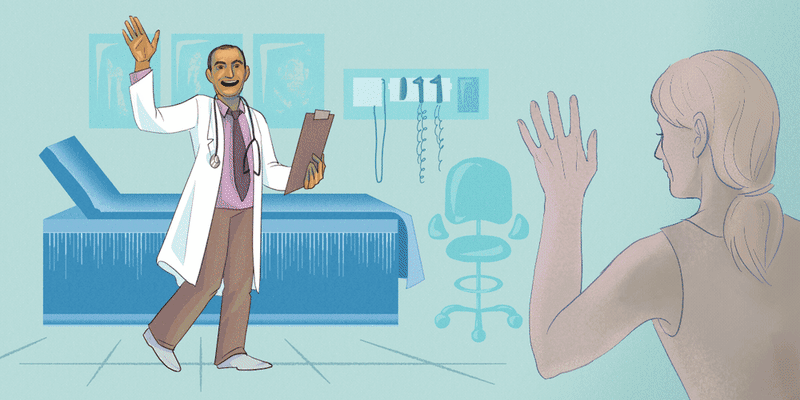During my didactic year of PA school, it was a running joke that we spent eight hours a day, five days a week, sitting in a chair and learning about how terrible a sedentary lifestyle was. We also got very little sleep and even less exercise, because we spent most of our time training to be clinicians who would one day teach patients how important it was to be well-rested and active. Our lifestyles improved a bit during our clinical year because we walked around clinics and hospitals instead of sitting in a classroom all day, but we still struggled to fit healthy habits into our lives.
Fast forward a few years into my clinical practice, and I like to think I practice much healthier habits, but I don’t always follow the advice I give my patients. There are times when I spend a day in clinic counseling patients to eat healthy, then go home and immediately start searching the pantry for a snack. And research shows I’m not alone. Despite working in health care, clinicians are not always the healthiest individuals. A study examining data from the National Health Interview Survey found that, although rates of obesity, diabetes, and hypertension are lower among health care professionals compared to the overall population, they are lower by a smaller margin than one would expect. Not only that, but the prevalence of moderate to high alcohol use was more common among health care professionals.
But perhaps we shouldn’t be surprised, as our schedules are not always conducive to healthy living. Just walk through any ED, and you’ll see boxes of donuts, cups of coffee, and bags of chips that are being used to propel exhausted clinicians through a sleepless night of countless emergencies. We often work long, irregular hours that are not always conducive to a good night’s sleep or a regular exercise routine. We also scrutinize our patients’ health metrics more closely than we would our own and put off annual checkups. I recall one patient encounter not long after I had joined a cardiology practice, where the patient told me about one of their previous doctors who had died of a heart attack in his 50s. “And he was a cardiologist,” they said, incredulous.
We have all experienced the frustration of spending time counseling a patient about their health, only to watch them continue to deteriorate because they won’t quit smoking or take their medications. We have also watched our patients suffer from conditions that are often preventable if intervention occurs early enough. However, if we don’t take our own advice, how can we expect our patients to take it? Maybe it isn’t enough to tell our patients how to live better; instead, we need to show them too. A study conducted in Israel that accessed data from Clalit Health Services, their largest health maintenance organization, found that patients whose physicians were compliant with recommended screening and vaccination practices were up to 13.7% more likely to also be compliant than those with physicians who were not.
I am overdue for my annual physical and don’t always eat as I should. That being said, I keep a 32-oz Nalgene bottle of water on my desk, and I try to go through two of these by the end of the day. I drink coffee, but I rarely drink soda, and I do some form of exercise almost every day. I think that if we make an effort to be healthy, then we truly believe the advice we give our patients, because we have felt the positive effects for ourselves. We can also sympathize with our patients because we know how difficult it is to maintain healthy habits, and can speak from experience just how good it feels when those habits pay off. Our shared experiences of our health struggles help us to relate to our patients on a human level and foster a closer, more authentic clinician-patient relationship.
How do you feel your health impacts the health of your patients? Share in the comments!
Hillary McDonald is a physician assistant practicing cardiology in southern Maryland. She enjoys reading, writing, and any activity that takes her outdoors. Recently, she completed a 100k running race, and because she decided that wasn’t crazy enough, she is in training for her first 100-miler.
Illustration by April Brust







